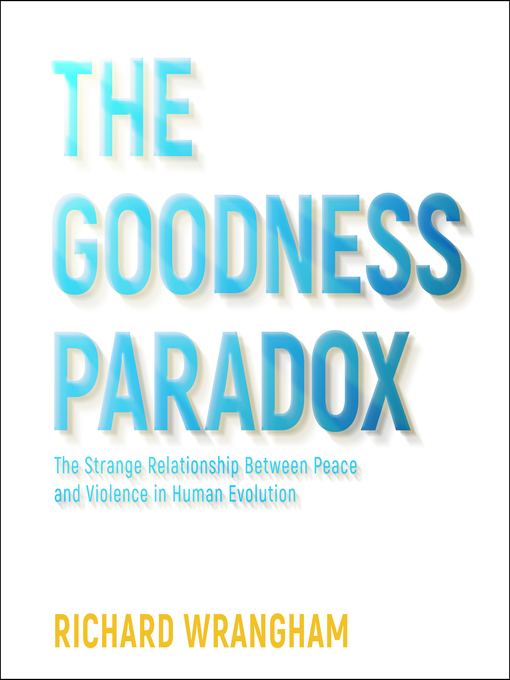The Goodness Paradox
The Strange Relationship Between Peace and Violence in Human Evolution
-
Creators
-
Publisher
-
Release date
January 29, 2019 -
Formats
-
OverDrive Listen audiobook
- ISBN: 9781684415595
- File size: 338131 KB
- Duration: 11:44:26
-
-
Languages
- English
-
Reviews
-
Publisher's Weekly
October 29, 2018
Wrangham (Catching Fire), a biological anthropologist at Harvard, undertakes a thorough and persuasive examination of this paradoxical observation: “we can be the nastiest of species and also the nicest.” He notes that “compared with other primates, we practice exceptionally low levels of violence in our day-to-day lives, yet we achieve exceptionally high rates of death from violence in our wars.” Wrangham argues that there are two types of aggression, reactive and proactive. The former reacts to an immediate threat while the latter connotes “violence that is coolly planned.” Wrangham builds the case that human evolution has selected against reactive aggression, in turn causing a self-domestication process akin to how humans tamed many animal species. Its key component was the human ability to form coalitions and thus impose sanctions, including capital punishment, on the overly aggressive. While “cooperation was a key to Homo sapiens’s domination of the earth,” it also gave humans “war, caste, the butchery of helpless adults, and many other forms of irresistible coercion.” Wrangham does not, however, propose that readers passively accept sanctioned violence as a necessary aspect of modern-day societies, concluding his well-argued treatise by rejecting the continued use of capital punishment and asserting that the “important human quest... is reducing our capacity for organized violence.”
-
Loading
Why is availability limited?
×Availability can change throughout the month based on the library's budget. You can still place a hold on the title, and your hold will be automatically filled as soon as the title is available again.
The Kindle Book format for this title is not supported on:
×Read-along ebook
×The OverDrive Read format of this ebook has professional narration that plays while you read in your browser. Learn more here.

